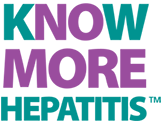Hepatitis C
Hepatitis C virus (HCV) infection is the most common chronic bloodborne infection in the United States; approximately 3.2 million persons are chronically infected. Although HCV is not efficiently transmitted sexually, persons at risk for infection through injection drug use might seek care in STD treatment facilities, HIV counseling and testing facilities, correctional facilities, drug treatment facilities, and other public health settings where STD and HIV prevention and control services are available. The actual numbers may be higher as the estimates do not include homeless, institutionalized, or incarcerated populations. Such populations may not be as likely to seek out or receive medical care and hence, may not be diagnosed.
Sixty to 70% of persons newly infected with HCV typically are usually asymptomatic or have a mild clinical illness. HCV RNA can be detected in blood within 1-3 weeks after exposure. The average time from exposure to antibody to HCV (anti-HCV) seroconversion is 8-9 weeks, and anti-HCV can be detected in >97% of persons by 6 months after exposure. Chronic HCV infection develops in 70%-85% of HCV-infected persons; 60%-70% of chronically infected persons have evidence of active liver disease. The majority of infected persons might not be aware of their infection because they are not clinically ill. However, infected persons serve as a source of transmission to others and are at risk for chronic liver disease or other HCV-related chronic diseases decades after infection.
HCV is most efficiently transmitted through large or repeated percutaneous exposure to infected blood (e.g., through transfusion of blood from unscreened donors or through use of injecting drugs). Although much less frequent, occupational, perinatal, and sexual exposures also can result in transmission of HCV.
The role of sexual activity in the transmission of HCV has been controversial. Case-control studies have reported an association between acquiring HCV infection and exposure to a sex contact with HCV infection or exposure to multiple sex partners. Surveillance data also indicate that 15%-20% of persons reported with acute HCV infection have a history of sexual exposure in the absence of other risk factors. Case reports of acute HCV infection among HIV-positive MSM who deny injecting-drug use have indicated that this occurrence is frequently associated with other STDs (e.g., syphilis). In contrast, a low prevalence (1.5% on average) of HCV infection has been demonstrated in studies of long-term spouses of patients with chronic HCV infection who had no other risk factors for infection. Multiple published studies have demonstrated that the prevalence of HCV infection among MSM who have not reported a history of injecting-drug use is no higher than that of heterosexuals. Because sexual transmission of other bloodborne viruses, such as HIV, is more efficient among homosexual men than in heterosexual men and women, the reason that HCV infection rates are not substantially higher among MSM is unclear. Overall, these findings indicate that sexual transmission of HCV is possible but inefficient
Hepatitis C Risk
HCV was first identified in 1989 as a distinctive organism that causes hepatitis. Prior to this time it was known only as hepatitis that differed from hepatitis A and hepatitis B and was called "non-A, non-B hepatitis." A laboratory detection test became available for use in July 1992. People most at risk of having and/or for acquiring HCV infection include:
- Persons who have ever injected drugs, even once in their lifetime
- Injecting drug users who share needles or other equipment
- Persons who received blood transfusions or organ transplants prior to July 1992
- Persons who received clotting factor from plasma produced before 1987
- Persons who have ever been on long-term kidney dialysis
- Persons with undiagnosed liver problems
- Health care or emergency workers after known exposure to HCV positive blood
- Children born to HCV positive women
- Persons born between 1945 - 1965 (Baby Boomers)
Unfortunately, there is no vaccine currently available for hepatitis C.
Iowa Department of Public Health is not a treatment facility. If you are looking for information about treatment for hepatitis C virus please contact your healthcare provider.
 |
CDC recommends all adults get tested for Hepatitis C.
|
For More Information on Hepatitis C
Links:
Documents: